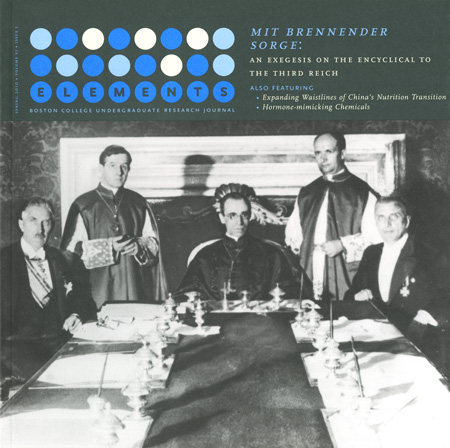Mit Brennender Sorge: An Exegesis on the Encyclical to the Third Reich
DOI:
https://doi.org/10.6017/eurj.v6i1.9021Keywords:
Spring 2008, humanities, history, theologyAbstract
Throughout the 1930s, the ascendance of the Nazi regime not only diminished the authority of the Roman Catholic Church in Germany, but alos directly countered fundamental Catholic doctrines. In face of the mounting atrocities of the German government, Pope Pius XI, with the help of Eugenio Pacelli, nuncio to Germany, and German Bishop Michael Faulhaber, in an unprecedented outreach to the entire German faithful, issued the encyclical Mit Brennender Sorge. Appealing particularly to the youth and the laity, the encyclical challenged Germans to use conscience as a final resort in assessing the validity of a religious institution or political movement. In its address to the German people, Mit Brennender Sorge reflected the delicacy of the relationship between the Holy See and the Nazi regime by not referencing any person, party, or organization specifically. Nevertheless, the purpose and the timeliness of the encyclical was lost on few, partially dispelling the widespread belief that the Catholic Church turned a blind eye to the Third Reich.Downloads
Published
2008-04-10
How to Cite
Valdez, A. (2008). Mit Brennender Sorge: An Exegesis on the Encyclical to the Third Reich. Elements, 6(1). https://doi.org/10.6017/eurj.v6i1.9021
Issue
Section
Articles
License
Copyright (c) 2015 Elements

This work is licensed under a Creative Commons Attribution 4.0 International License.

